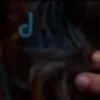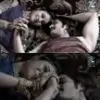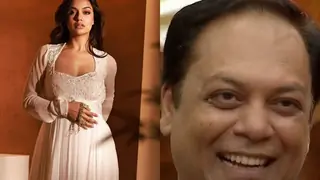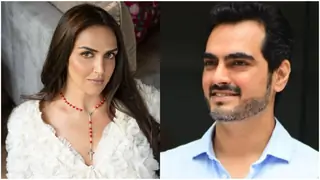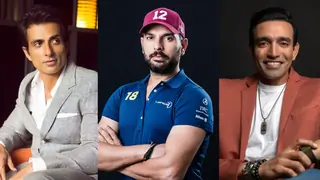It was absolutely beautiful, Akanksha... how well said... (I think Divya said this too) that Heera stood strong/poised amidst all that hardship, but during this realisation/revelation, she collapsed... she couldn't take it... the betrayal...
Btw, your review reminded me that I've been wanting to answer Sandy about something -Bahadur recognising this Marwari racer...Bahadur is a special horse, but it is not just Bahadur's speciality, Sandy...it's something that horses do... they recognise horses by their whinnies... call out to them... also, they have a better sense of smell than humans... they would have 'smelled' the horse much before Akbar's men could have heard a horse coming!This is from an old article -
Horses have an almost human ability to recognise individual herd members from their neighs, a study has shown. Whinnies, the name for when a horse neighs, are made by both adult and young horses when they become separated from the group.
The study of 24 horses conducted by scientists from the University of Sussex showed that hearing the sound of a whinny conjures up visual memories of a horse's appearance.
This kind of 'cross-modal' recognition was once thought to be a purely human trait.
In the experiment, horses reacted with surprise when they heard the 'wrong' whinny from a concealed herd-mate.
Twelve horses were studied from the Woodingdean livery yard in Brighton, and 12 from the Sussex Horse Rescue Trust in Uckfield. Horses were shown one of two familiar members of their herd who was led past them and out of sight behind a barrier.
After a 10 second delay, the horses were then played a recorded whinny either from the herd-mate they had seen, or from the other animal.
When the sound did not match the herd-member seen walking behind the barrier, the horses seemed startled. They responded more quickly and looked in the direction of the call for longer.
The scientists, led by Dr Karen McComb, from the University of Sussex in Brighton, wrote in the journal Proceedings of the National Academy of Sciences: 'Overall, horses responded quicker and looked for a longer time during trials in which the familiar call heard did not match the familiar horse previously seen, indicating that the incongruent combination violated their expectations.
'This is the first clear empirical demonstration that in the normal process of identifying social companions of its own species, a non-human animal is capable of cross-modal individual recognition.'








